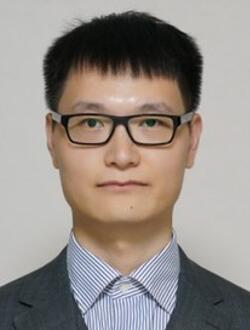
Assistant Professor Guangtao Duan
Department of Nuclear Engineering and Management
School of Engineering, The University of Tokyo
guangtao_duan@dem.t.u-tokyo.ac.jp
Guangtao Duan received his PhD degree in Xi’an Jiaotong University in 2016. He became a junior researcher since 2018 in Waseda University and an assistant professor since 2020 in the University of Tokyo. His research focuses on the accuracy and stability improvement of the Lagrangian particle methods and the thermal-multiphase-flow application of numerical methods in various engineering fields. He is a member of the Computational Science and Engineering Division, Atomic Engineering Society of Japan. He has more than 30 peer-reviewed international journal papers in CMAME, JCP, IJNME, and so on. His papers have more than 500 citations. He has received “Excellent Paper Award” by Chinese Society of Theoretical and Applied Mechanics in 2014, “Best Paper Award” in 6th International Conference on Computational Method in 2015, “Best Paper Award” in 12th International Topical Meeting on Nuclear Reactor Thermal-Hydraulics, Operation and Safety (NUTHOS-12) in 2018, “Best Doctoral Thesis Award” from Xi’an Jiaotong University in 2019, and “AESJ CSED Young Researcher Award” from Atomic Energy Society of Japan in 2020.
Title: Stability and accuracy enhancement of Lagrangian particle methods for droplet flows
Abstract: Particle methods have great potential for simulating multiphase flows with free surfaces. However, the lack of accuracy and stability is a key challenging problem for the conventional particle methods. The least squares method can be used to greatly enhance the accuracy of particle methods but easily trigger instability at the free surfaces. In this talk, two important strategies will be presented to guarantee the stability of the high-order particle method based on least squares. First, a novel free-surface detection approach is proposed to solve the instability at the free surfaces based on the stability analysis. Specifically, a theoretical and numerical analysis for the error accumulation due to the biased neighbor support is performed to clarify how the error accumulates over time and triggers instability. Second, a new particle shifting technique at free surfaces is proposed based on the surface reconstruction from curve fitting. The technique can greatly reduce the fluctuations of the detected free-surface boundaries and further enhance the accuracy and stability of simulations. After these two strategies are adopted, the reliability of droplet flow simulations is remarkably improved. Compared to conventional mesh methods, the new particle method can greatly save computational cost. As solutions for the bottleneck problems, these proposed techniques are expected to pave good way for the industrial applications of particle methods.